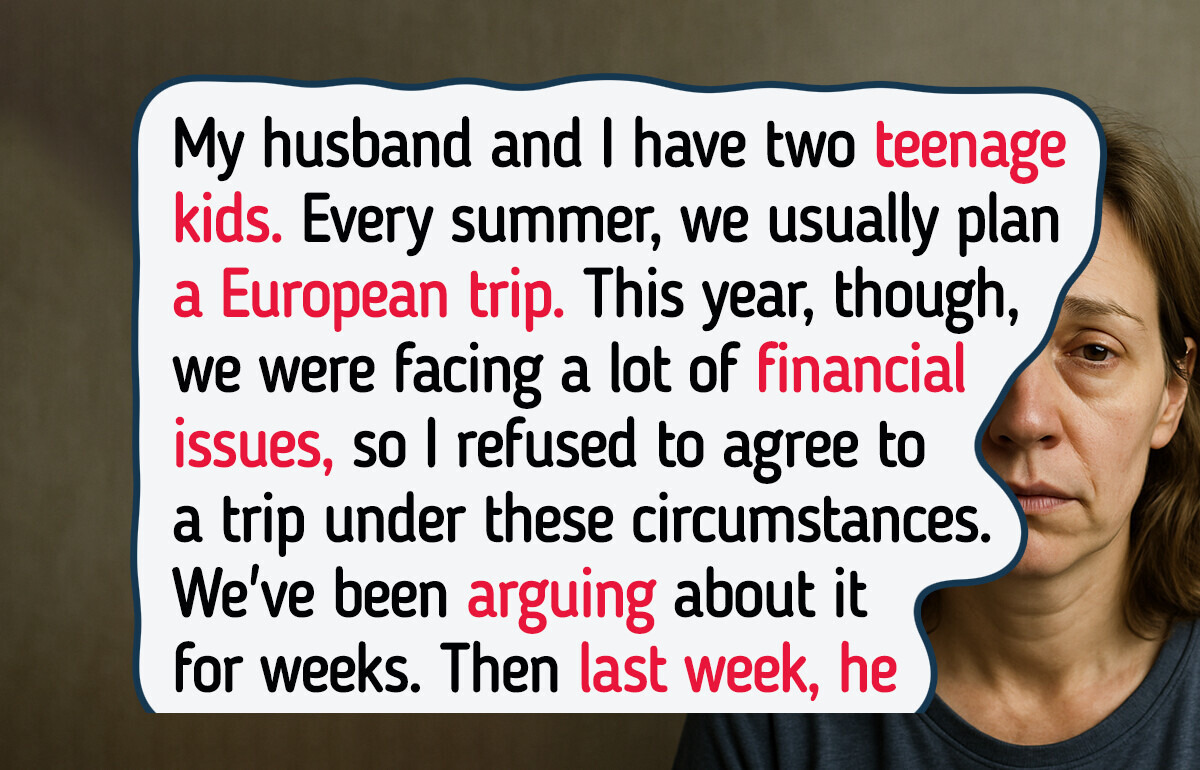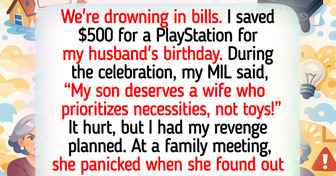My Ex-Husband Chose His New Family Over Our Son—I Gave Him a Lesson He Won’t Forget


A reader recently reached out to us asking for advice about a difficult situation at home. Her family have a long-standing tradition of going on summer trips. But with major financial pressure, she’s feeling torn — between her instincts to be cautious, her husband’s refusal to scale back, and the emotional fallout it’s causing within the family.

“I’m honestly looking for some advice because I’m stuck and don’t know the best way forward.
My husband and I both work full-time, and we have two teenage kids. Every summer, we usually plan a European train trip — visiting different cities, mixing nights on sleeper trains with stays in nice 4-star hotels. We usually fly home with a budget airline once the trip is done. It’s always more expensive than a traditional two-week all-inclusive resort, but it’s something we really enjoy as a family.”
“This year, though, we were facing a lot of financial issues and are in the middle of major home renovations now — around $70k — and we have no savings. All the renovation costs are being added onto our mortgage. On top of that, my husband intends to put the holiday expenses on his credit card. So I refused to agree to an overseas trip under these circumstances.
I suggested we scale back this year — maybe rent a cottage for a week instead — so we could brace for any unexpected renovation costs. But my husband completely rejected the idea. He insists he deserves a proper break because of how hard he works. We’ve been arguing about it for weeks.
Then last week, he told the kids that I didn’t want to go on holiday and made them choose: come away with him or stay home with me. Our daughter chose to go with him, but our son said he wanted to stay.”
“Since then, my husband has been making constant digs at me in front of the kids — saying I don’t understand finances or that I don’t work as hard as he does. It’s been awful. And to make matters worse, I just found out he went ahead and booked the train tickets for himself and both kids anyway — ignoring the fact that our son had said he didn’t want to go.
I’m completely torn. My son is standing firm that he won’t go if I don’t. But if I agree to go, it will push us even deeper into debt. My husband refuses to even discuss a cheaper alternative.
I’m sorry this is so long, but there are so many layers to it... I really don’t know how to move forward.”

Creating a joint budget that reflects both partners’ priorities can help align your financial decisions. By setting shared goals, such as saving for future vacations or managing renovation expenses, you can work together towards common objectives, reducing conflict and building financial harmony.
If discussions remain unproductive or tensions escalate, seeking help from a financial advisor or couples therapist can provide neutral ground for resolving conflicts. Professionals can offer tools and strategies to manage disagreements constructively and strengthen your relationship.

When discussions turn into arguments, the issue isn’t always just about money — it’s about values, control, and feeling heard. Instead of approaching the situation as a standoff, reframe it as a shared problem to solve together. Use “I” statements instead of “you” accusations. For example: “I feel anxious about our financial situation, and I’d like us to explore some compromises together.”
This encourages your partner to feel like a teammate rather than an opponent. Validating each other’s emotional experiences, even during disagreements, can reduce hostility and build trust.

When children witness conflict, particularly when one parent undermines the other (as your husband did by involving them in a split decision), it can place them in the middle — leading to anxiety, confusion, or even long-term trust issues. You can mitigate this by gently and clearly talking to your children about the situation in a way that protects their emotional safety.
Avoid speaking negatively about your partner; instead, focus on clarity and reassurance. The American Psychological Association emphasizes that maintaining open, honest, and age-appropriate communication during times of family stress can foster resilience and help children feel more secure.
Most family dramas brew over dinners or holidays — but sometimes, they knock right at your door. In one letter, a brother shared how a simple favor for his sibling spiraled into a shocking twist he never expected.











